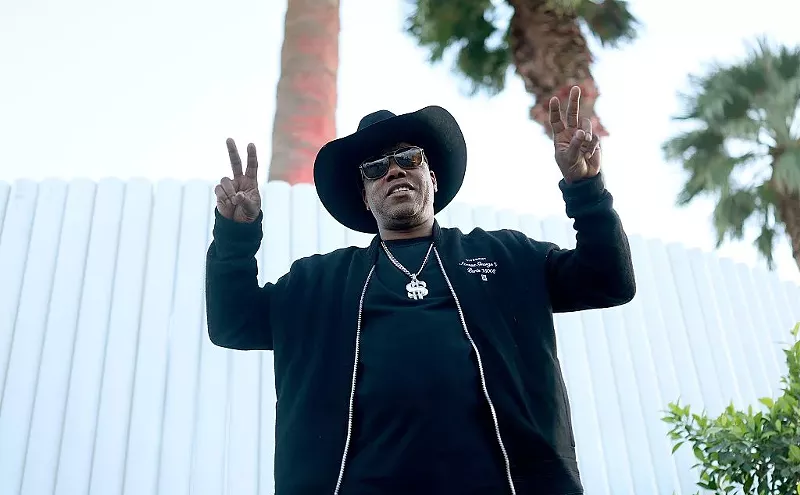Following the success of last year's Bloom, an album that landed on many year-end lists, you could say that Baltimore's Beach House has outdone itself. Unlike many contemporary artists, vocalist Victoria Legrand and guitarist Alex Scally have avoided many genre tropes and firmly remained true to their dreamy, poppy sound. In essence, they've aimed to continually reinvent their ethereal disquietude, each attempt more haunting than the one before. There's a certain indifference in the tone of guitarist Alex Scally when he says that even if Beach House were to suddenly go downhill, he wouldn't care.
"A lot of my favorite artists have these amazing, strange, meandering paths," Scally says over the phone. "I think sometimes bands are too cautious because they're afraid to walk off the path. So I hope that doesn't happen to us, that we can stay true to our own inspirations and not just become one of those bands that's afraid to make something bad, so they're boring."
Before Beach House, Scally jammed in many "kinda worthless things, fun things," including a reggae band. But his shift into dream pop — and his attraction to the gauzy, softly blurred sounds — was never conscious, he says.
"We continue to gravitate to sounds that we find pleasing or exciting," Scally says. "We're not the kind of band that hears a record and goes, 'Oh, let's go after that sound.' I think sometimes bands that do that are good. David Bowie did that. It's not how we work artistically. We're more inside out."
But Scally and Legrand aren't the only ones attracted to that sort of sound — British Volkswagen asked to use the band's song "Take Care" in an advertisement, but Beach House refused to license it. So Volkswagen hired a group called Sniffy Dog to record a track that sounded eerily similar.
"They did it in such a way that we couldn't take legal action because it's just a few percentage points unique enough to not be able to do anything. But clearly, that's what they did," Scally says, the annoyance in his voice apparent. "They do it all the time in the advertising world. They aren't artists, those people; they're thieves. They're people that don't know how to do music so they just steal stuff from people. I have no respect for Volkswagen or Sniffy Dog. I think they're low people in our society, but there's an endless supply of people doing low things all around us, so I shouldn't be harsh to judge. But that's what they are: They're just thieves."
Scally added, "I don't want to complain too much; I just want to make sure people are aware that's what advertising companies are doing all the time."
Although it's not entirely the same situation, Beach House ran into a snag with its self-titled debut album. The band adapted "Snowdon Song" by '60s folk group Tony, Caro, and John, changing the key, the time signature, and the lyrics and renaming it "Lovelier Girl." The only problem was that Tony, Caro, and John were given zero attribution. Four years later, when Beach House blew up, the folk group contacted them.
"So we settled everything with them and they're fine and we're fine. We made sure all the necessary royalties go to them and all that stuff, and they're in the index as the co-writers," Scally says. "We had no idea on our first record that's how that thing worked. You don't know anything when you're just kids in a basement making a record."
But Scally doesn't like the comparison. "In case you were trying to link the Sniffy Dog thing with the 'Lovelier Girl' thing, they're completely different. Covering songs on records is completely legal because you do all your royalties and everything. Just stealing a song and using it for a commercial is a much different story . . . You know, they're not related at all."












